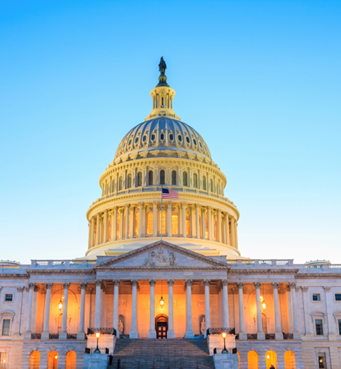Lawmakers Push to Let Observation Stays Count for Medicare Nursing Home Coverage

Confusion over hospital classifications has left many seniors on the hook for costly post-acute care. New bipartisan legislation seeks to close the gap.
Unfortunately, millions of older Americans face surprise bills each year when they need skilled nursing care after a hospital stay, but don’t meet Medicare’s strict three-day inpatient rule. Now, a bipartisan group of House lawmakers is renewing efforts to fix what they call an outdated policy that unfairly penalizes patients.
Reps. Glenn ‘GT’ Thompson (R-PA), Joe Courtney (D-CT), Susan DelBene (D-WA), and Ron Estes (R-KS) have introduced the Improving Access to Medicare Coverage Act of 2025, which would update Medicare’s 60-year-old three-day requirement by counting time spent in the hospital under observation status toward the three-day threshold.
Under current law, Medicare will only cover skilled nursing facility (SNF) care if a beneficiary has spent at least three consecutive inpatient days in a hospital. But patients under “observation status” — even when they stay multiple nights — do not qualify, leaving them potentially ineligible for Medicare-covered nursing home care.
This archaic rule is one of the most unfair parts of Medicare. Seniors and their families don’t understand the difference between inpatient and observation — they just know they stayed in a hospital bed for days. Our bill ends this absurd technicality so that time in observation counts, too. — Rep. Ron Estes (R-KS)
Observation Stays: a Growing Problem
Observation status has become increasingly common in recent years, with hospitals wary of audits that question inpatient admissions. According to the Medicare Payment Advisory Commission (MedPAC), observation stays lasting longer than 48 hours rose by nearly 160% between 2006 and 2021.
The result is widespread confusion: patients believe they were hospitalized “inpatient” but later discover they don’t meet Medicare’s requirements for skilled nursing coverage.
A 2022 report by the Center for Medicare Advocacy called the current policy “a Kafkaesque trap for seniors,” noting that a single night classified as observation instead of inpatient can cost families tens of thousands of dollars in nursing home fees.
Why Most Long-Term Care Costs Go Uncovered
Even if Congress fixes the observation stay loophole, it’s vital to understand that most long-term care needs are custodial, not skilled — and therefore never covered by Medicare or health insurance.
Custodial care includes extended care to help with basic living activities like bathing, dressing, eating, or toileting — the type of assistance most older adults eventually need. Medicare covers only short-term skilled care after a qualifying hospital stay, generally up to 100 days. Once someone’s needs shift from skilled rehabilitation to help with everyday activities, Medicare stops paying.
Private health insurance policies don’t cover custodial care either. This leaves seniors paying out of pocket until they qualify for Medicaid, which only covers custodial long-term care for those with limited financial resources, often forcing people to spend down nearly all assets first.
“This is why Long-Term Care Insurance has become an essential part of many Americans’ retirement plans,” said Matt McCann, a nationally recognized long-term care planning expert. “It helps people avoid spending everything or burdening their families while ensuring access to quality care.”
According to the LTC News Cost of Care Calculator, the annual cost of assisted living averages $58,236 (before surcharges), while nursing home care can exceed $108,405 per year. Planning can help protect savings and give the policyholder more control over their future care options.
Broad Support but Uphill Battle
The new legislation mirrors earlier versions introduced over the past decade that failed to pass. However, advocates are hopeful that growing bipartisan concern about senior health costs — and pressure from groups like the American Health Care Association — will finally push the measure through.
We support this bill because it modernizes Medicare for today’s realities. Patients and providers alike have been harmed by arbitrary observation rules. — Mark Parkinson, president and CEO of the AHCA.
If enacted, the Improving Access to Medicare Coverage Act of 2025 would amend the Social Security Act to count any combination of inpatient and observation days toward Medicare’s three-day requirement — a seemingly small change that could mean the difference between affordable care and financial ruin for countless seniors.


